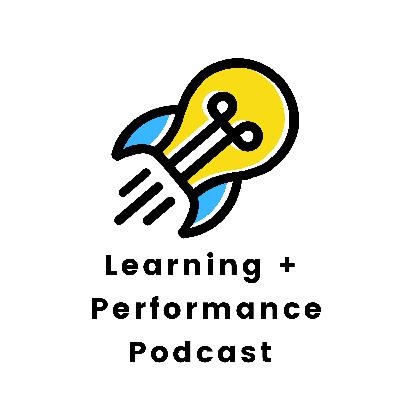#18 - Cathan Kabrelian on Compassionate Communication with Ourselves and Others
Description
In this episode of The Learning and Performance Podcast, I speak with the late Cathan Kabrelian, a leading expert in compassionate communication. Cathan was a trainer, speaker, retreat leader, and mentor, known for integrating compassionate communication into a wide range of fields, from education to corporate environments. Through her work as a trauma-informed Needs-Awareness Trainer, Certified Mindfulness Instructor, and Breath Coach, Cathan brought a unique depth to understanding and teaching not only effective communication skills but the self-awareness skills to transform conversations and relationships at work, at home, and in all those third spaces. Together, Cathan and I discussed why compassionate communication matters and how you can use it to live a more self-aware, wonderful, and connected life.
Key Topics
In the conversation, we hit on a number of interesting topics relevant to learning and performance, including:
- What is compassionate or non-violent communication, and why is it important
- The importance of feelings and needs awareness to life and relationships
- The OFNR framework of observation, feelings, needs, requests
- How to translate thoughts and judgments into needs
- Feelings as a “radar” for detecting what we need
- Shifting from blaming others to identifying our own values and needs
- Why self-connection is necessary to connect with others
- Three ways to navigate challenging feelings
- Two ways to practice compassionate communication - formal and real-life
- Using compassionate communication at work
- And much more...
Learn More About Cathan and NVC
- Cathan's website
- In Loving Memory
- NVC by Marshall Rosenberg
- New York Center for NVC
- The Compassion Course by Thom Bond and team
Notes,Mentions, and Resources
- Identity - not just WHO we are or WHAT we do or believe but HOW we are
- Performance - achieving tasks towards a goal with creativity, skill, and compassionate consideration of needs
- Learning - understanding something better than we did before
- Learning-Performance "Loops" - Learn, Practice, Perform.
- Compassionate/Non-Violent Communication (NVC)
- Needs awareness
- Non-Violent Communication (NVC) by Marshall Rosenberg
- OFNR Framework - Observations, Feelings, Needs, Requests
- Observations - what we notice about ourselves, others, and the world
- Feelings - sensations stimulated by met or unmet needs
- Needs - universal life impulses; drivers of actions
- Requests/Strategies - ways to meet our needs
- Compassion Course Online
- The Compassion Book by Thom Bond
- NY Center for NVC (NYCNVC)
- Effective practice is intentional, focused, aware
- Translating Judgments Practice - translating judgments into feelings and needs/values
- Shifting from judgment and blaming to connection, curiosity, and compassion
- Principle - everything we do we do to meet a need or value
- Feelings as "radar" for needs, not something to fear or push away
- Applying NVC at work - values and what matters>needs; focusing on individual self-connection leads to more curiosity, compassion, and connection with co-workers
- It doesn't take two to change a conversation, only one
- Dealing with difficult feelings by connecting to met/unmet needs - (1) notice judgments/resistance/thinking, (2) tune into body sensations, (3) identify what you want/need and embody it, (4) think of a strategy to meet the needs
- Feelings and Needs list
- Study by Brene Brown on average number of feelings of Americans
- Self-connect first to connect with others second
- Two types of practice for showing up better - formal and integrative/IRL
- Cathan's website - Compassionate Thriving
- Types of Judgments - Value judgments, preferences, assessments vs. moralistic judgments
- High performance in life = showing up authentically and connecting with others
- Mindfulness
- Somatic experiencing and breathwork
- Compassion vs. empathy





